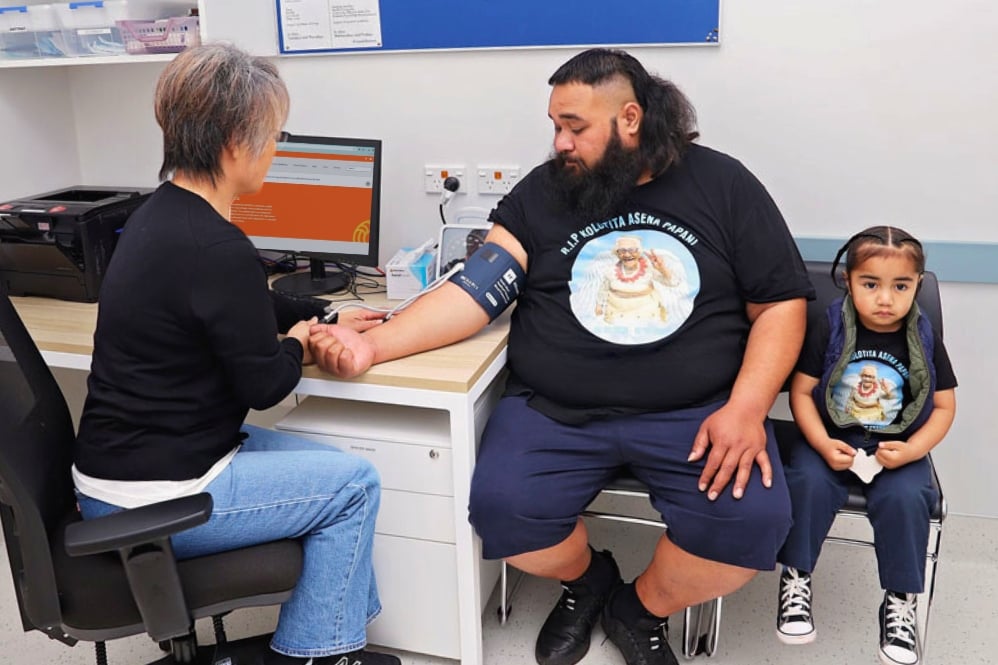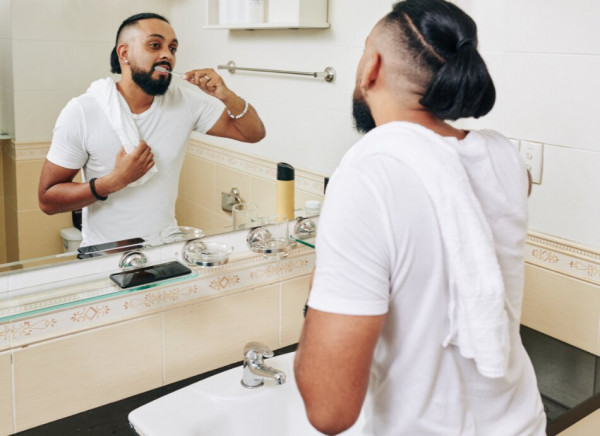You can now add Healthify as a preferred source on Google. Click here to see us when you search Google.
Health check-ups
How often are routine or regular check-ups needed?
Key points about how often health check-ups are needed
- Having regular health checks helps to find problems early and support a healthy lifestyle.
- Not everyone needs a check-up every year.
- How often you need a check-up depends on your age, health, and risk factors.
- Your healthcare provider can help you decide what’s best for you.
- If you have a long-term condition or take medicines regularly, you'll likely need more frequent check-ups
- This page is for adults and young people.

Even if you feel fine, seeing a healthcare provider regularly can help find problems early and keep you well in the long run.
Health checks can:
- find any issues early when they’re easier to treat
- check your risk of future health problems
- support your overall wellbeing and lifestyle goals
- keep your immunisations and screening tests up to date.
You can also talk about ways to improve your lifestyle, such as quitting smoking, being more active, or eating well. A health check-up is a good time to talk about any health problems which might run in your family.
What if I don't have a healthcare provider?
Having a regular doctor or clinic is important for staying well. To find one:
- ask friends or whānau for suggestions
- choose someone you feel comfortable with and can get to easily.
They can help you keep track of your check-ups, screening, and medicines.
Find out about signing up with a healthcare provider(external link).
You don’t always need a check-up every year – especially if you're young, healthy, and have no ongoing health issues. For many people, having a check-up every 2 to 3 years is enough.
It's a good idea to talk to your healthcare provider about how often you should be checked if:
- you're getting older
- you have 1 or more long-term health conditions
- you have a family history of health problems such as diabetes, cancer or heart disease
The most important thing is having a regular healthcare provider you trust and feel comfortable seeing when needed.
You might need a health check when:
- you're feeling unwell or have symptoms
- you want to check your risk for conditions such as diabetes or heart disease
- you’re managing a long-term condition such as asthma or arthritis
- you start a new medicine
- you want help with lifestyle changes (eg, quitting smoking, contraception)
- you have a family history of certain conditions
- you’re pregnant or planning to be
- you're due for regular screening (eg, cervical cancer checks).
Your healthcare provider will talk to you about your:
- personal and family health history
- lifestyle, such as what you eat, how much activity you do, and whether you smoke or drink
- mental wellbeing
- medicines or supplements.
They’ll do a physical examination, including checking your heart, lungs and abdomen (tummy), check your blood pressure, weight and heart health, and may ask for some lab tests. If you're at higher risk for certain conditions, they may recommend screening or further tests.
What other things are included in a health check-up?
When your healthcare provider gives you a check-up, this might also include doing or referring you for:
- diabetes screening
- skin checks
- STI checks
- a bone health check (especially for osteoporosis in older adults).
They may also remind you about screening or tests for:
Vaccines, or reminders about vaccines, may also be offered, such as:
- annual flu vaccine
- shingles vaccine
- tetanus booster
- pneumococcal vaccine
- COVID vaccine or booster.
Read more about immunisation for adults.
Other professionals such as your dentist, optometrist, or audiologist may also be part of your regular care for your teeth, eyes and hearing.
Your doctor or nurse can help you create a plan that suits your needs and goals. This may include:
- what's important to you now and in the longer term
- your goals for what you want to achieve with your health, lifestyle (eg, quitting smoking or getting more exercise) and more broadly
- how often you should have check-ups
- medicines you’re taking
- what to do if you get sick
- who to contact when you need help.
You can ask for a copy to keep at home and refer to it as needed. This plan can also include help for your whānau if needed. Read more about setting goals and care planning and care plans.
A good resource to start you off on thinking about your health and what you want to achieve is Te Kete Haerenga.
To get the most from your visit to your healthcare provider:
- bring a list of any medicines or supplements you take
- write down any symptoms, questions, concerns and thoughts about what matters to you
- mention any recent changes in your health
- let the clinic know in advance if you need extra help, such as a translator, or mobility support such as a wheelchair.
If you are seeing a healthcare provider you haven't seen before, or you have a long list of things you want to talk about it, might be worth asking about a double appointment when you make your booking.
Read more about how to get the most out of your healthcare appointment.
When you have a health check-up:
- ask questions, especially if something is unclear
- be honest about sensitive topics such as mental health, smoking, or sexual health
- repeat back information in your own words to check you understand
- take notes, or bring someone to support you
- ask how to follow up or contact your healthcare provider later if needed, eg, by email or though a patient portal.
Your healthcare provider is there to help, not judge. The more they know, the better they can support you.

Image credit: Canva
You can look after your health at home by checking in on the following things.
- Alcohol – keep it to 2 (women) or 3 (men) or fewer drinks at a time and have at least 2 alcohol-free days each week.
- Teeth – brush twice daily, eat and drink less sugar, and see a dentist once a year.
- Diet – eat at least 5 servings of vegetables and 2 fruits a day.
- Physical activity – aim for 30 minutes of moderate activity most days.
- Skin – check for new or changing moles or spots, especially if you're outdoors a lot.
- Smoking – quitting is one of the best things you can do for your health.
- Blood pressure and heart rate – you can check these if you have a monitor at home. You can also use the My Heart Check tool to give you an idea of your heart health.
- Breast or testicular self-checks – get to know what’s normal for your body and see a doctor about any changes.
- Bone health – you can use these bone health tests to work out your bone health and fracture risk.

Image credit: Canva
For more information or to discuss what health checks are right for you, talk to your healthcare provider. They’ll help you make a plan that fits your needs.
Apps
Self-management apps
Quit smoking apps
Alcohol use apps
Nutrition, exercise and weight managements apps
Blood pressure apps
Skin check apps
References
- Health checks – when you need them and when you don't(external link) Choosing Wisely, NZ, 2014
- How often should you see your doctor for a checkup?(external link) Healthline, US, 2025
- Regular health checks(external link) Better Health Channel, Australia
Credits: Healthify editorial team. Healthify is brought to you by Health Navigator Charitable Trust.
Reviewed by: Dr Emma Dunning, Clinical Editor and Advisor
Last reviewed:





